Politics
“Africa’s Democratic Future Holds Promise” – Peter Obi
Published
5 months agoon
By
Ekwutos Blog“Africa’s Democratic Future Holds Promise” – Peter Obi
Ekwutosblog has gathered that Peter Obi, the 2023 presidential candidate for the Labour Party and former governor of Anambra State, has expressed optimism about the future of democracy in Africa. In a post shared on X, Obi reflected on his recent speech at Yale University, where he discussed the challenges and opportunities facing African democracies as the continent continues to navigate the complexities of democratic governance.
Obi began by acknowledging the deep sense of disillusionment among African electorates, which, according to him, stems from a failure of leadership and unmet expectations from democratic systems. “In my contribution, I highlighted that Africa’s electorate disillusionment stems from a failure of leadership, largely due to the unfulfilled expectations of democratic governance,” he stated.
He also highlighted key challenges impeding the progress of democracy in Africa, including flawed elections, violations of term limits, and unresolved conflicts that hinder democratic growth. He pointed out that internal divisions, such as ethnic and religious tensions, further weaken institutions and create a widening trust gap between the public and political leaders.
Additionally, Obi emphasized the importance of new political movements in addressing the exclusion of marginalized groups and pushing for a more inclusive political landscape across the continent. “The necessity for more inclusive politics is critical in this journey,” Obi remarked, stressing the need for reforms that reflect the diverse voices of African societies.
Reflecting on Africa’s political evolution, Obi pointed to the transition from single-party systems to multi-party democracies as evidence that while building democracy is a challenging process, it is ultimately achievable. He stressed the importance of political will and unwavering commitment to the rule of law as fundamental requirements for genuine reform.
“In Africa, we must understand that true reform requires not just good intentions, but political will and a steadfast commitment to the rule of law,” Obi noted. Despite the significant challenges facing the continent, he remains hopeful for Africa’s democratic future. Obi called on the people, especially the youth, to commit to driving change, advocating for stronger governance, and demanding electoral integrity.
At the event, Obi was joined by Governor Alex Otti of Abia State and Obiageli Ezekwesili, former Minister of Education in Nigeria, both of whom also shared insights on the importance of strengthening democratic institutions in Africa.
You may like


POLICE TO COMMENCE TRAINING FOR 10,000 NEW RECRUITS NATIONWIDE As IGP Charges Recruits on Police Reforms, Ethics and Professional Conduct


Moment helicopter crashed into Hudson River in New York (VIDEO)
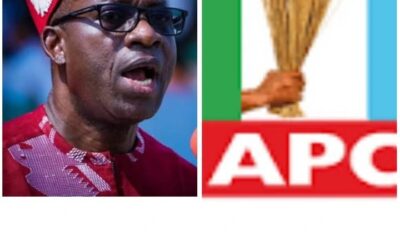

APC Can’t Take Anambra Like Edo, Imo and Kogi— Gov Chukwuma Soludo
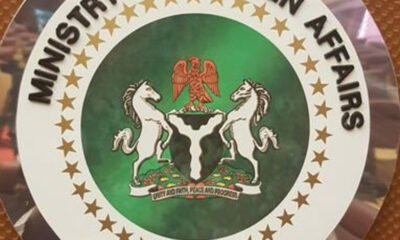

List of ambassadorial nominees not ready – Foreign Affairs Ministry
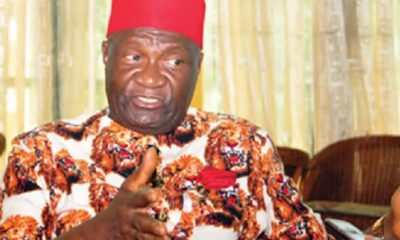

Condemn herdsmen’s activities in South – Ohanaeze ex-spokesperson, Ibegbu tells Northern govs
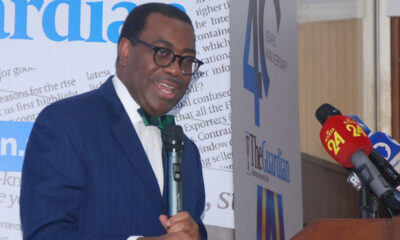

Nigeria losing big to ‘Japa’ trend, says Adesina
Politics
APC Can’t Take Anambra Like Edo, Imo and Kogi— Gov Chukwuma Soludo
Published
7 hours agoon
April 11, 2025By
Ekwutos Blog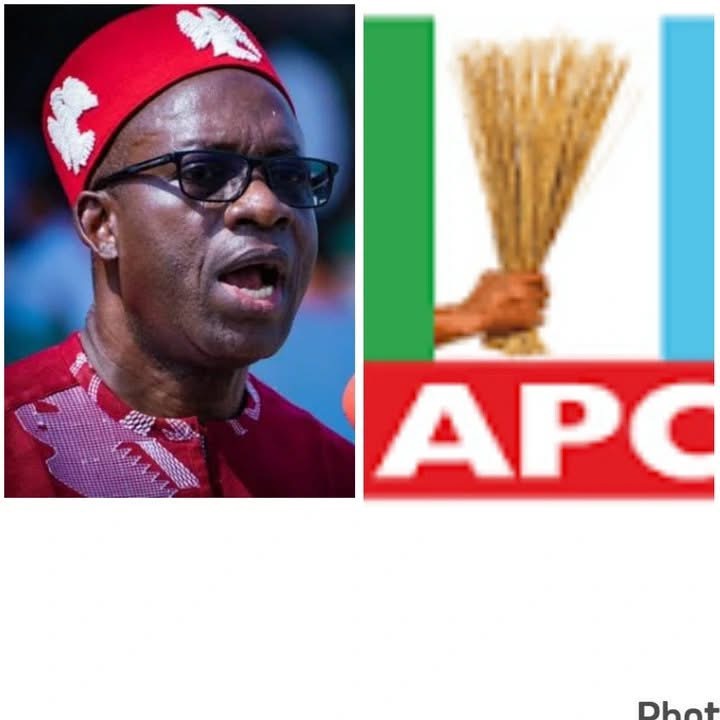
Governor Charles Soludo has dismissed the chances of the All Progressives Congress in the upcoming November 8 Anambra governorship election, declaring that the party lacks the grassroots presence needed to win in the state.
Soludo, who is seeking re-election under the All Progressives Grand Alliance, made the statement during an interview on Arise Television’s Prime Time.
The National Chairman of the ruling APC, Abdullahi Ganduje, had repeatedly stated that the APC had its eyes on southern states under the opposition control, such as Edo, Anambra, Osun and Oyo states.
But the governor stated that APC was able to prevail in states like kogi and imo because the incumbent governor’s got reelected, and they prevailed in Edo because they had grassroot structure.
Politics
List of ambassadorial nominees not ready – Foreign Affairs Ministry
Published
8 hours agoon
April 11, 2025By
Ekwutos Blog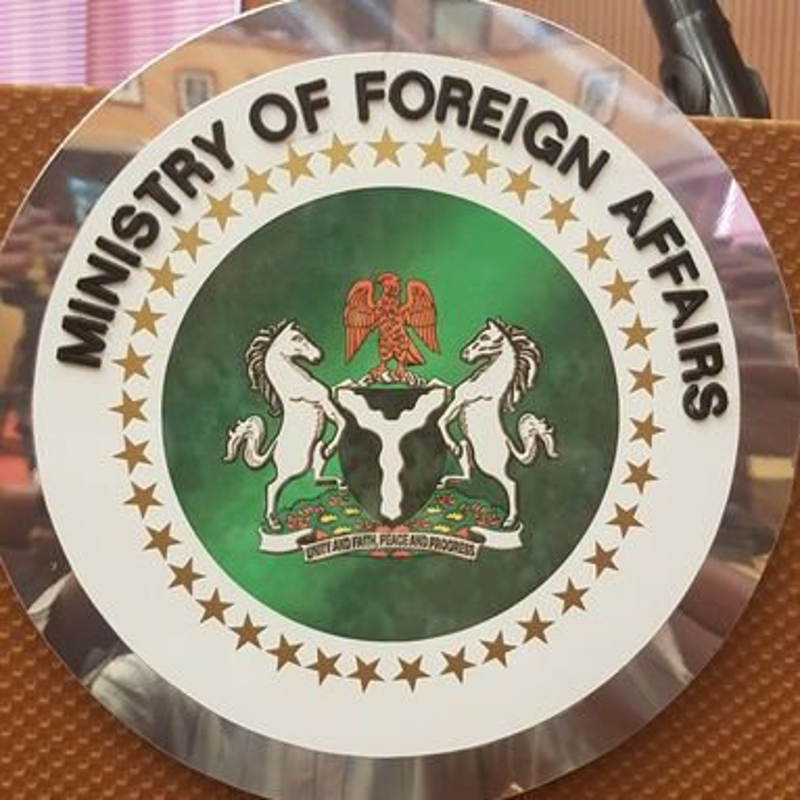
The Federal Ministry of Foreign Affairs has stated that President Bola Tinubu is yet to make any official appointment of ambassadors.
This clarification was issued in response to a list of ambassadorial nominees currently circulating on social media.
In a statement released by the acting spokesperson of the Ministry, Kimiebi Imomotimi Ebienfa, the list was described as false and should be disregarded.
The statement read: “Kindly disregard the frenzy about the ambassadorial list.
“Be rest assured that, when it is ready, Mr. President will transmit the list of nominees to the National Assembly for screening and confirmation.”
The ministry assured Nigerians that the public would be duly informed through the appropriate channels once a legitimate list is finalised.
This clarification comes amid heightened public interest in Nigeria’s diplomatic representation, particularly following the recall of all ambassadors in September 2023.
Politics
Rivers crisis: You introduced violence, ethnic politics – Wike’s aide knocks Ada George
Published
11 hours agoon
April 11, 2025By
Ekwutos Blog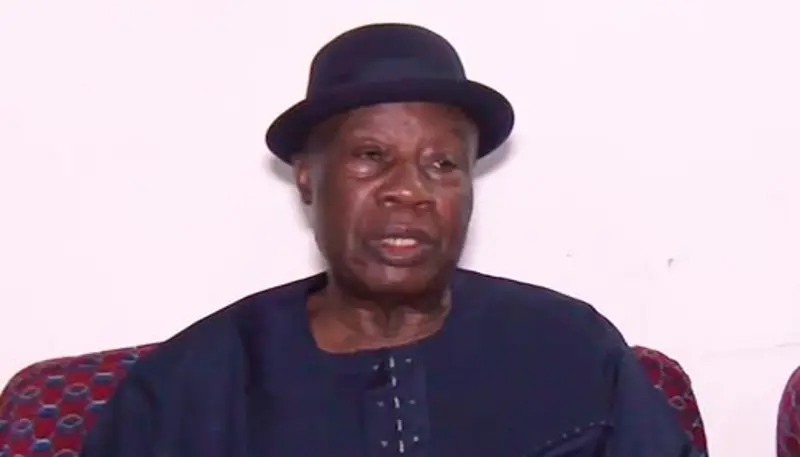
Former Governor of Rivers State, Rufus Ada George, has been challenged to list a single positive development he brought to the state, other than an alleged introduction of violence and ethnic politics.
This challenge was issued by the media aide to the Minister of the Federal Capital Territory, FCT, Nyesom Wike, Lere Olayinka, on Thursday.
In a statement he signed, Olayinka said it was on record that the only impact that can be linked to George was the introduction of “Bush Boys” militant group, which he used to settle political scores.
According to Olayinka: “At old age, people should begin to desist from acting shamelessly.
“After leaving office as Governor in 1993, what happened to his relationship with Dr Peter Odili, who was his deputy? Why did he not support Odili for governor in 1999 and 2003? Why was he in All People’s Party (APP) while Odili was in People’s Democratic Party (PDP)?
“Records of his involvement in the activities of the Bush Boys are well documented in the report of the 2008 Justice Kayode Eso led Rivers State Truth and Reconciliation Commission, which heard accusations that he (Ada George) sponsored the Bush Boys in the September 2001 violence.
“As a former Governor of Rivers State, he could not reconcile the warring Okrika factions, reason they didn’t have an Amayanabo until Wike became governor. Rather than resolve the chieftaincy crisis, Ada George took side and used his Bush Boys militant group against those against his preferred candidate.
“As Rivers State Governor, in 1993, when violence ensued in the Ogoni people’s protest against exploitation by Shell, Ada George took side with his former employer against the Ogoni people.
“That’s the person of Ada George, who was among those who took side with the suspended Governor of Rivers State, Siminalayi Fubara when he threw rule of law to the dogs and was boasting that the State House of Assembly and its members existed only because he wanted them to exist.
“He never for once told Fubara the truth that it was illegal to run a House of Assembly of 32 members with just three members and that it the height of wickedness to deny fellow indigenes of Rivers State their entitlements, thereby making it difficult for to feed and take care of their wives and children.
“Today, at close to 85 years, the same Ada George, who was urging Fubara on in his regime of lawlessness, is addressing the press and advertising his shamelessly by accusing the FCT Minister of being behind the political crisis in Rivers State, including the imposition of a state of emergency and the appointment of sole administrators in all 23 local government areas.
“One wonders where he kept his position as an elder when members of the State House of Assembly, who are indigenes of Rivers State were deprived of their salary and other entitlements by Fubara.
“Also, did the same Ada George, not say that President Bola Ahmed Tinubu was a ‘meddlesome interloper who engaged in executive rascality by intervening in the crisis and reaching amicable resolutions that all parties signed?’
“Therefore, Ada George is advised to for once, be circumspect and stop advertising shamelessness at old age.”

POLICE TO COMMENCE TRAINING FOR 10,000 NEW RECRUITS NATIONWIDE As IGP Charges Recruits on Police Reforms, Ethics and Professional Conduct

Moment helicopter crashed into Hudson River in New York (VIDEO)

APC Can’t Take Anambra Like Edo, Imo and Kogi— Gov Chukwuma Soludo
Trending

 Trending6 months ago
Trending6 months agoNYA demands release of ‘abducted’ Imo chairman, preaches good governance
- Business6 months ago
US court acquits Air Peace boss, slams Mayfield $4000 fine

 Politics6 months ago
Politics6 months agoMexico’s new president causes concern just weeks before the US elections
- Entertainment6 months ago
Bobrisky transferred from Immigration to FCID, spends night behind bars
- Entertainment6 months ago
Bobrisky falls ill in police custody, rushed to hospital

 Politics6 months ago
Politics6 months agoRussia bans imports of agro-products from Kazakhstan after refusal to join BRICS

 Politics6 months ago
Politics6 months agoPutin invites 20 world leaders
- Politics1 year ago
Nigerian Senate passes Bill seeking the establishment of the South East Development Commission.

